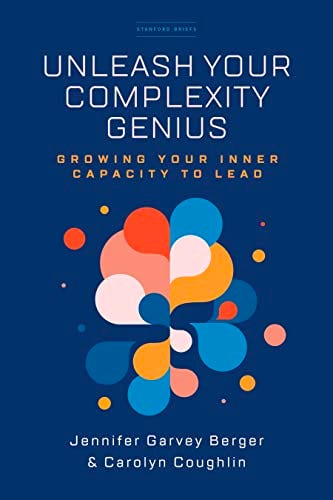🌀🗞 The FLUX Review, Ep. 67
September 15th, 2022
Episode 67 — September 15th, 2022 — Available at read.fluxcollective.org/p/67
Contributors to this issue: Dimitri Glazkov, Neel Mehta, Erika Rice Scherpelz, Boris Smus, Ben Mathes
Additional insights from: Ade Oshineye, Gordon Brander, a.r. Routh, Stefano Mazzocchi, Justin Quimby, Alex Komoroske, Robinson Eaton, Spencer Pitman, Julka Almquist, Scott Schaffter, Lisie Lillianfeld, Samuel Arbesman, Dart Lindsley
We’re a ragtag band of systems thinkers who have been dedicating our early mornings to finding new lenses to help you make sense of the complex world we live in. This newsletter is a collection of patterns we’ve noticed in recent weeks.
“The nation that will insist upon drawing a broad line of demarcation between the fighting man and the thinking man is liable to find its fighting done by fools and its thinking by cowards.”
— Sir William Butler
💰📇 Propositional pricing out
In corporate finance, earnings results are often priced out: the market has good predictions of the relevant information in advance, so by the time that information becomes official, it’ll have already been accounted for in the current stock price.
The same is true of our personal positions in the metaphorical marketplace of ideas. It turns out that it is nearly impossible to directly change someone’s mind — including your own. A person’s current beliefs and behaviors are propositionally priced out. They already take into account the information they know. If you already know that flossing regularly is good for you, being told again isn’t likely to improve your dental hygiene practices if it hasn’t already. En masse, this can lead to us being more interested in the marketplace of rationalization than in the marketplace of ideas — we look for new ideas to confirm and explain our existing beliefs.
So if we can’t change minds, what can we do? We can change awareness. This may mean introducing new information, or it may mean framing existing information in a new way. In either case, to change means to to think about something in a way we haven’t already propositionally priced out in our existing behaviors and beliefs. New information does two things. First, it causes us to reevaluate our beliefs. Second, it might help us move to a new belief or behavior by addressing a concern or doubt we may not have even known we had. With our flossing example, maybe learning about floss picks can get someone over their dislike of wrapping floss tightly around their fingers.
A corollary of the idea that existing beliefs are propositionally priced out is that there is no bulletproof argument for a particular idea. You always need to understand what is novel relative to the person you are trying to persuade. The hard work of listening and learning, even to those you vehemently disagree with, is a necessary first step if you want to change their awareness in a way that might plant a seed that could change their mind.
🛣️🚩 Signposts
Clues that point to where our changing world might lead us.
🚏💉 The US may start offering COVID boosters annually along with flu shots
High-level health officials in the White House announced a plan to distribute new COVID-19 booster shots this fall, which people would be able to get alongside their usual annual flu shot. The President indicated that this annual COVID-plus-flu vaccine combo would become the norm going forward, with one official adding that “a single annual COVID shot should provide a high degree of protection against serious illness all year.”
🚏🌎 Patagonia’s billionaire founder gave away the whole company to fight climate change
Yvon Chouinard, the billionaire founder of the outdoor gear company Patagonia, announced that he’d be donating 98% of the company’s shares to a new nonprofit that would “use every dollar [of dividends] received from Patagonia to protect nature and biodiversity, support thriving communities and fight the environmental crisis.” The remaining 2% (the voting shares) will be given to a trust that’s tasked with steering the company and proving that “capitalism can work for the planet.” The total value of Chouinard’s gift is about $3 billion.
🚏🌀 This year’s Atlantic hurricane season has been 50% weaker than normal so far
Atmospheric scientists predicted that this year’s Atlantic hurricane season would be more active than normal, but so far the opposite has been happening: the cumulative power of this season’s tropical storms (a metric called ACE) is less than half the ACE of a normal year at this point in the season. Even though we should be at the peak of hurricane season, the Atlantic is “extraordinarily quiet,” perhaps due to high amounts of dust in the atmosphere and strong upper-atmosphere winds that tear apart developing storms.
🚏🛩 United Airlines is ordering another 200 air taxis
United Airlines has been investing heavily in the air taxi (formally “electric vertical take-off and landing vehicle,” or eVTOL) business; it recently invested $15 million into one air taxi manufacturer and ordered 200 units, which the airline expects to receive as soon as 2026. This is on top of a 100-taxi order that United placed last month. These flying taxis seem ideal for short-hop transport: they can fly up to 60 miles on a charge and reduce noise by 90% compared to conventional aircraft.
🚏🚜 Software will account for 10% of John Deere’s revenues by 2030
John Deere is a juggernaut in the farming equipment industry, but the CEO recently announced a plan to diversify its revenue stream with a cloud service called the John Deere Operations Center. This subscription service, which the CEO hopes will one day be connected to 1.5 million machines, will “collect and store crop data, including millions of images of weeds that can be [algorithmically] targeted by herbicide.” The company thinks this will become the backbone of a software business that’ll attain 85% profit margins (compared to the 25% margin of equipment sales) and eventually make up 10% of the company’s revenues.
🚏📖 Printed books are changing because of inflation
Thanks to the pandemic, the war, and the supply-chain crunch, printing books has gotten expensive: the paper used by British book publishers has gotten 70% pricier in the last year, and the cardboard used in hardcovers is almost impossible to find. Publishers have had to cut costs, and you can see the evidence in newly-printed books: cheaper and lighter paper, plus smaller text and thinner margins to cram more words onto every page.
🚏🧯 With the proof-of-stake “merge,” Ethereum’s energy use is poised to drop ~10,000x
Ethereum’s proof-of-work algorithm for securing the blockchain received plenty of criticism (and rightly so) for consuming as much energy as a medium-sized country, along with burning many megatons of carbon and generating thousands of tons of electrical waste from obsolete mining hardware. But this morning, when Ethereum officially switched to a new proof-of-stake consensus mechanism — where people vote on transactions by wagering their staked funds, rather than by computing trillions of hashes per second — the network’s energy consumption plummeted. By Ethereum’s own estimate, the network’s annual energy use will now be just 0.01 terawatts per year, down from 112 — a 10,000-fold drop.
📖⏳ Worth your time
Some especially insightful pieces we’ve read, watched, and listened to recently.
Lessons from the Techwreck (Startups and Econ) — Writes that much of the chaos engulfing the tech sector came from tech companies leaning too hard into COVID-era fads, only to be too slow to pivot back when things started returning to normal. During the COVID business cycle, billions of dollars of capital were misallocated into projects that only shipped after the cycle was over, when they no longer fit the market.
The Anthropocene Is a Joke (The Atlantic) — Argues that, while the carbon-spewing industrial era has certainly transformed the world, it makes up a vanishingly small amount of time on a geological scale; if anyone looks at the geological record in the far future, there will be barely any evidence for this period at all. In the grand scheme of things, the “Anthropocene” barely qualifies as an event, not an “epoch.”
Notes Against Note-Taking Systems (Sasha Chapin) — A forceful reminder that “getting lost in your knowledge management system is a fantastic way to avoid creating things.” Keep your note-taking system simple and focus on writing instead of burdening yourself with managing an elaborate information database.
Barcelona’s Superblocks (Luke Spray) — Describes how small tweaks to Barcelona’s city planning created an environment of pleasant, inviting, and walkable mini-neighborhoods, and suggests what other cities can do to emulate them.
What Will Earth Look Like When These 6 Tipping Points Hit? (PBS Terra) — Investigates how Earth’s climate systems, from seasonal monsoons to the Atlantic Meridional Overturning Circulation, are deeply interconnected, and how climate change-induced breakdowns in any one of them could cause cascading failures in the others.
Lose Your First 50 Games As Quickly As Possible (Sensei’s Library) — A lively discussion around a pithy proverb from the game of Go, which emphasizes that newcomers to a domain should seek to maximize their rate of learning by poking around the system, without getting attached to the (usually negative) outcomes they’ll get early on.
The World Is Awful. The World Is Much Better. The World Can Be Much Better (Our World in Data) — Argues that, for many issues, all three of these statements can be true at the same time. For instance, child mortality is still bad, but the rate of child death has fallen tenfold since 1800, and yet we could still cut this rate another tenfold. Too often, the media focuses on just one of the three perspectives when discussing an issue, but we need to realize that it’s always possible to improve things if we work for it.
📚🌲 Book for your shelf
An evergreen book that will help you dip your toes into systems thinking.
This week, we recommend Unleash Your Complexity Genius: Growing Your Inner Capacity to Lead by Jennifer Garvey Berger and Carolyn Coughlin (2022, 156 pages).
In this book, Berger and Coughlin make a powerful assertion: our capacity to thrive in uncertainty and ambiguity is already within us, waiting to be unlocked. We already have all the necessary tools to become well-adapted to handling complexity, right here — in our bodies. All we need to do is learn how to engage these inner resources.
This book is a wonderful introduction into the complex system that is our body and our mind, and is structured as an examination of six kinds of “complexity genius” (the inner resources that are within us) and the corresponding Genius Engagement Moves, or GEMs (practices that help us amplify each genius).
Written in the now-classic Jennifer Garvey Berger weave of a fictional story surrounded by chapters that offer the insight on what’s going on, the book is an easy read and is a must-have for anyone practicing complexity work.
© 2022 The FLUX Collective. All rights reserved. Questions? Contact flux-collective@googlegroups.com.




